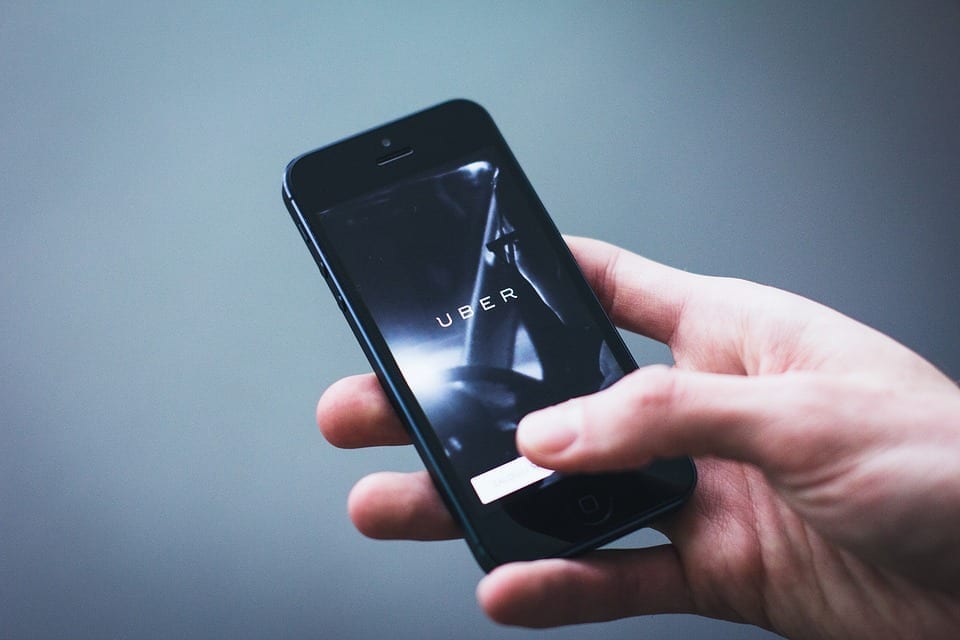Did Uber discriminate against a woman with cerebral palsy in Texas? One lawsuit thinks so. According to a lawsuit filed earlier this week, D’Edra Steele was denied rides from a number of Uber drivers on “approximately 25 separate occasions” between 2016 and 2017. In the lawsuit, Steele claims that “drivers repeatedly canceled rides because she requires the use of a service dog” and as a result, she has accused “Uber of violating the Americans with Disabilities Act and the Texas Human Resources Code.” She currently hopes to receive damages for “intentional infliction of emotional distress.”
Did Uber discriminate against a woman with cerebral palsy in Texas? One lawsuit thinks so. According to a lawsuit filed earlier this week, D’Edra Steele was denied rides from a number of Uber drivers on “approximately 25 separate occasions” between 2016 and 2017. In the lawsuit, Steele claims that “drivers repeatedly canceled rides because she requires the use of a service dog” and as a result, she has accused “Uber of violating the Americans with Disabilities Act and the Texas Human Resources Code.” She currently hopes to receive damages for “intentional infliction of emotional distress.”
In her lawsuit Steel details out a variety of times where she was allegedly denied service from Uber drivers as soon as the drivers discovered she uses her service dog, Goodee, “in order to walk and help maintain her balance.” Oftentimes drivers gave Steele excuses such as “allergies, lack of protective seat covering, or simply not wanting to clean up dog hair as reasons for canceling rides” that often left her stranded at places like the grocery store. On one occasion she was even late to a family Thanksgiving get together because an Uber driver refused her service.

So what does Uber have to say for itself, especially given the fact that this isn’t the first time the company has been accused of discrimination? For starters, Uber responded to the allegations by pointing out that the company has a “zero tolerance policy for discrimination of any kind by drivers or riders.” Additionally, the company’s “accessibility policy is clear that drivers aren’t allowed to deny rides because of service animals in any circumstances,” and states:
“Driver-partners have a legal obligation to provide service to riders with service animals. A driver-partner CANNOT lawfully deny service to riders with service animals because of allergies, religious objections, or a generalized fear of animals.”
In Steele’s case, she made an extra effort to visibly label Goodee as a service dog to avoid incidents like the many she experienced from Uber drivers. She went to extra mile to ensure drivers would know her dog was a service dog even though, according to Uber’s website, “there is no requirement that a service animal wear a tag, be registered, or display any kind of proof that it is a service animal.”
Before filing the lawsuit against Uber, Steele noted that she often reported the sudden cancellations to the company’s customer support and critical response department in hopes that the drivers would be properly educated on the company’s policies. A few times she called she was told that her claims were being investigated, but most of the time she was simply given a $5 credit “and a guarantee that she wouldn’t be paired with the same driver again.” After getting nowhere with the company, she even “filed complaints about specific incidents with the Department of Justice.”
As more and more private transportation business such as Uber continue to offer transportation services, it will be interesting to see how many of them make the concerted effort to ensure their drivers abide by laws such as the Americans with Disabilities Act and whether drivers who don’t will be held accountable for essentially breaking the law. As for Uber, the company’s community guidelines clearly states:
“We also want to help increase the transportation options for riders with disabilities. We expect drivers using the Uber app to comply with all relevant state, federal and local laws governing the transportation of riders with disabilities, including transporting service animals.”
Editor’s note: March is Cerebral Palsy Awareness Month, and March 25 is National Cerebral Palsy Awareness Day.
Cerebral Palsy is a neurological disorder marking muscle coordination. In most cases, cerebral palsy is caused by brain damage that develops while the baby is still in utero or during or shortly after birth. Comprehensive information about cerebral palsy and most common types can be found on sites like cerebralpalsyguidance.com.
Sources:
Uber drivers denied service to woman with cerebral palsy, new lawsuit claims
Texas Woman With Cerebral Palsy Says Uber Denied Service to Her Over Two Dozen Times


Join the conversation!